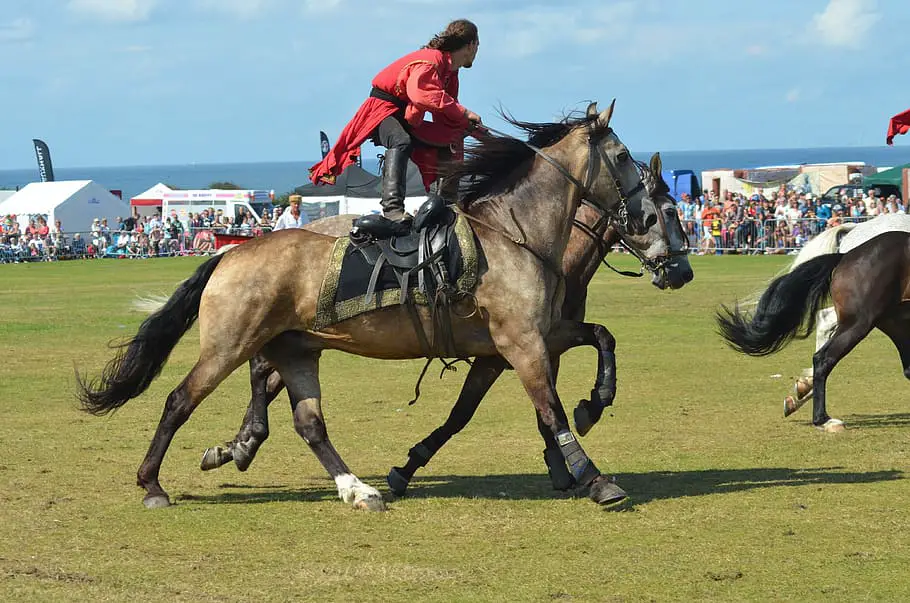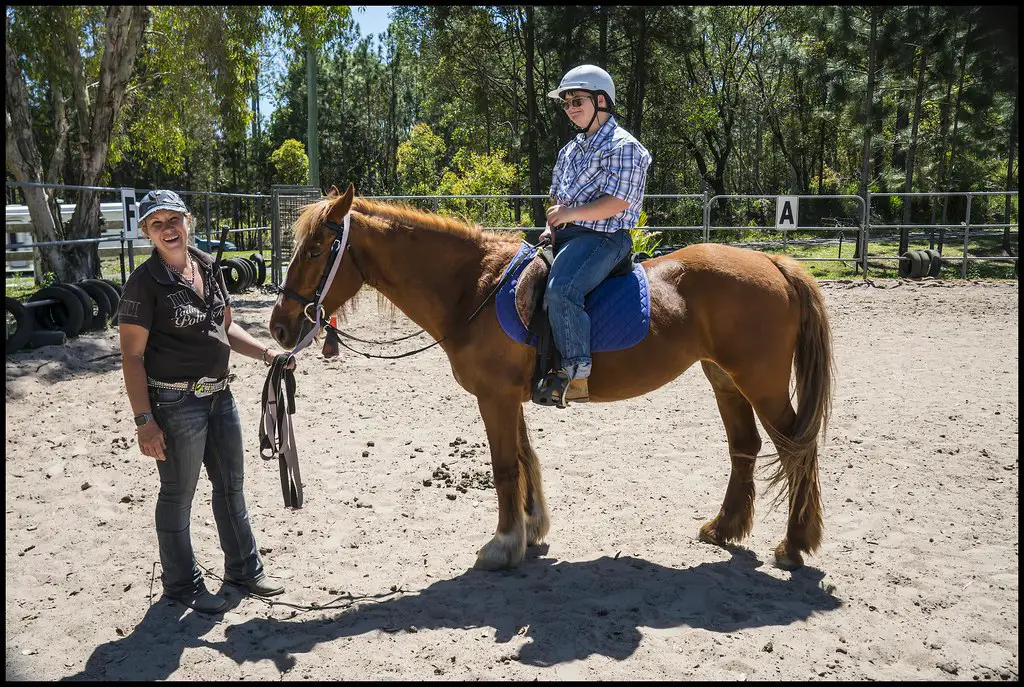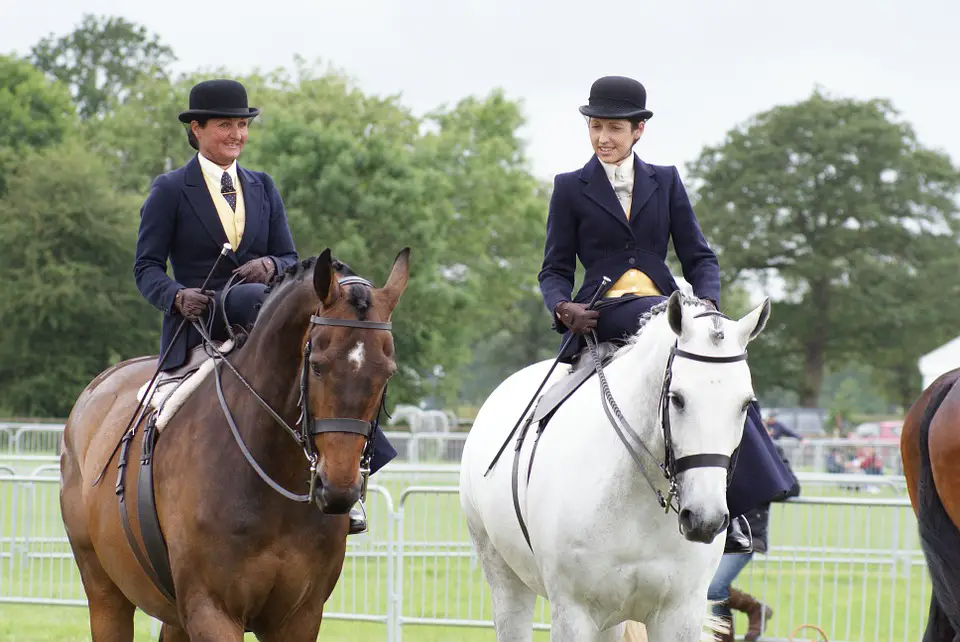Last Updated on July 29, 2020 by Allison Price
Riding can be a lifelong pursuit for many. One should have lifelong foundation riding skills. While some don’t need riding ability, it is still important that one knows horse riding. This is so they will have an appreciation of teaching any riding skills and techniques. There are five levels of horseback riding experience. These are the following:
Beginner Level
Beginners do not have enough experience with horse riding. They do not know how to handle a horse. They don’t know any basic commands to make the horse move forward, turn, trot, stop, and back unassisted.
Novice
Novice riders’ experience with horses is pretty basic. They may have some lessons or might own a horse as a child (or recently), but did not compete or train young horses. They can mount and ride off unassisted.
Advanced Beginner Level
These people have little experience with horses. These riders can mount and walk off unassisted. They know all basic level commands such as move, forward, and stop.
Intermediate Level
The rider has taken lessons or trained under a mentor for a while. They ride in several disciplines and may compete. They ride different kinds of horses already and can take care of a horse on their own.
Advanced Level

These riders have ridden most of their lives. They have worked with a trainer or mentor. They already did intensive riding training for many years. They have competed at popular shows in their discipline. They know advanced maneuvres in their preferred riding discipline.
Skills for Horse Riding
There are specific skills needed to maneuver or steer a horse. These are factors every rider should know. They need to carry it with them each riding experience for safety.
Learn the basics.
There are a lot of skills a rider must first know and it ranges from easiest to the hardest. For you and your horse safety during the riding experience, you need to at least know the basic skills. This includes the following:
- Mounting and Dismounting
- Posture & Balance
- Walk On
- Turn – Direct Rein or Neck Rein
- Circle on rail
- Reverse
- Working Walk
- Back up
- Bending
Master your eyes to focus.
It is important to be always looking in front rather than staring at the ground when riding a horse. Make sure you are not distracted or too immersed in your horse’s headset and face.
Continuous staring at the ground or your horse brings your focus to other aspects. It will lead to frequent jerking of their mouth or fussing with their face. This makes your riding experience dangerous. So lift your eyesight and look where you are heading. Practice looking at your horse through a peripheral vision while he/she is moving.
Know the proper grip.
Are your wrists turned in or held at a broken angle? Do you clench the reins, or instead barely have a grip on them? Or are you the type of person who barely has a grip on your horse?
If the answer is “Yes” then you may have to deal with this problem first.
When riding, the reins are the direct form of contact with your horse. It is a power that is not to be then abused. Harsh hands or soft, weak hands can confuse the horse, even if your other riding aids are solid.
Your hands are the driving factor so you better know how strong your grip must be. Becoming too handsy will make your horse have a hard mouth. This will hurt your horse. Be flexible but firm with your reins and hands.
Ride with your seat.

Riding with your seat drives the horse up into the bridle. It allows a rider to stop their horse and start forward motion. Also, they can back up, adjust the speed of each gait, and move laterally.
Not enough leg and hands that are too hard will leave a horse unwilling or afraid to go forward. Too much leg and no hands at all will encourage the horse to run through the bridle. This will also make the horse rush around through all its gaits.
The best way to learn to ride with your seat is to follow the horse’s motion at the walk. Allow your legs to stretch while doing so. This may take some time. Once you’ve mastered this, your riding experience will get better.
Have patience and be persistent.
These two are not exactly your type of skills. But, they both have important roles to play when it comes to horse riding. Every good rider knows that the processes of learning basic skills cannot be then rushed. Both the horse and the rider need time to get new techniques, as well as get familiar with each other.
For beginners, handling a horse may be difficult from the start. At least once you will encounter a not so easy horse. You might fall for the first time, which gives you so much fear you might give up. Keep in mind that these instances may happen. This is because your abilities are not enough yet and the horse will lead you astray.
Your patience and persistence are very vital to your horse’s behavior. Also, it affects your total riding experience.
Master your communication skills with your horse.
Now this one involves a lot of training and patience. It is not an easy situation for the rider to understand why and how does the horses’ act. Horses cannot speak our language but they can identify sounds and objects. You can teach them some skills that involve verbal commands. Teach them a few basic skills, so you can control them a little easier.
Observing your horse’s action can help you understand them. Horses react when they are then scared. They show reactions when they are in pain. They won’t move if they are usually tired. They can be stubborn at times and a lot more.
Think logically.
A rider should analyze a situation. Especially when problems appear that appear while training horses need such ability.
It’s inevitable to make mistakes when riding a horse. But you can conclude ahead of time to prevent the same mistakes from happening in the future. Stay in control. Think fast no matter what the situation is.


